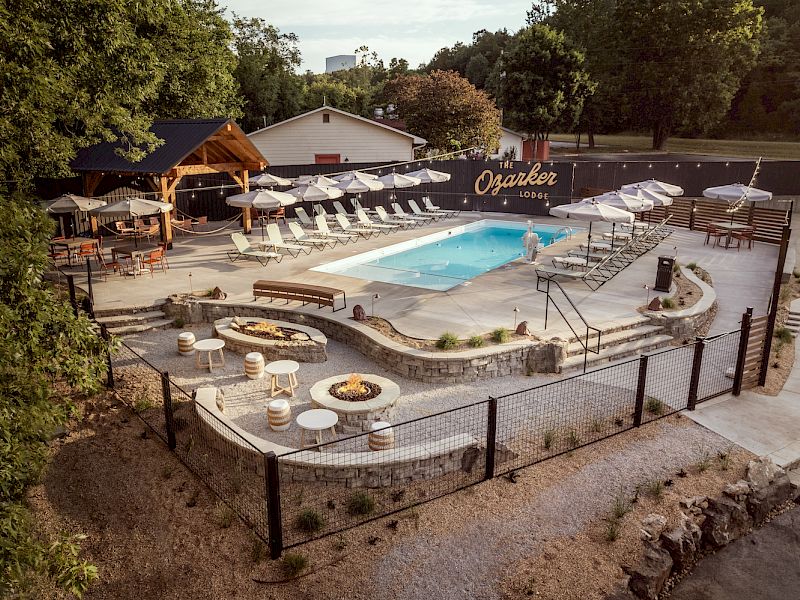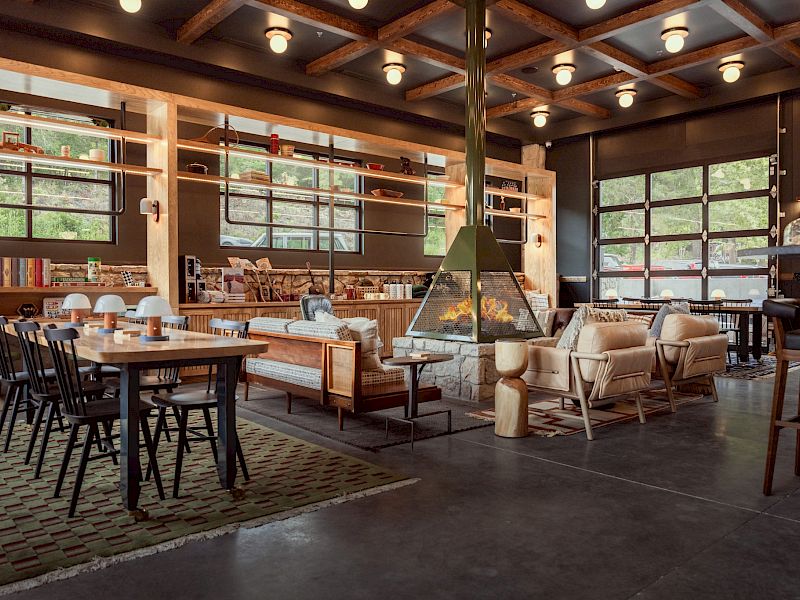The Future is Local: Why “Place-Based Branding” Makes Sense
September 17, 2024
Jeremy Wells
Travelers are no longer satisfied with cookie-cutter hotel experiences. Instead, they want to feel connected to the destination they visit. Modern travelers want to feel immersed in local culture, history, and community — and experience a true sense of place while away.
For hotels, this presents an opportunity.
By embracing place-based branding—an approach that weaves local culture and traditions into the hotel’s identity, experiences, and programming—hotels can differentiate themselves and create more meaningful guest experiences. This approach not only helps establish strong connections with guests but also helps support the local economy and strengthens the community.
In this blog, I’ll explore the growing importance of place-based branding in hotel development, why it resonates so strongly with travelers, and how hotels can implement this strategy to enhance guest experiences.
Staying Up with Traveler Preferences
“Staying Like a Local”
Today’s travelers want more than just a place to stay—they want to connect with the local community. Rather than sticking to tourist hotspots, they’re interested in discovering how locals live, work, and relax. This trend reflects a desire for more meaningful experiences, where travelers can feel like they’re truly part of the destination.
Many travelers prefer to “stay like a local,” avoiding the usual tourist paths. They want to explore local cafes, hidden shops, and lesser-known attractions that show the true character of a place. This approach makes their stay more personal and gives them the feeling of discovering something unique.
Experiencing Local Culture and Traditions
Engaging with local traditions and culture is a big draw for travelers. Whether it’s tasting traditional food, attending local festivals, or learning about the area’s history, visitors want to immerse themselves in what makes a place special. This type of experience often leaves a deeper and more lasting impression than just sightseeing.
When hotels offer locally sourced products, highlight regional traditions, and partner with community businesses, they give guests a true sense of place. This connection transforms a simple stay into a richer experience, allowing travelers to feel more grounded in the destination.
Getting Out of Their Comfort Zone to Experience Something New
Many travelers today are also looking to step out of their comfort zones. They want to try new foods, meet new people, and take part in experiences that challenge them. This sense of adventure helps travelers grow, making their trips more memorable and fulfilling. In fact, according to a 2023 Booking.com survey, “73% [of Travelers] want to experience travel out of their comfort zone, with 30% keen to explore lesser-known cities to find some hidden gems.”
The Benefits of Place-Based Branding
1. Differentiation in a Crowded Market
In an industry filled with global chains offering cookie-cutter experiences, place-based hotels stand out by creating a brand that reflects the local culture and traditions. This approach helps hotels differentiate themselves and appeal to travelers seeking something more unique. This differentiation is crucial for standing out in a crowded marketplace.
2. Deeper Guest Engagement and Loyalty
Place-based branding also creates a deeper connection between the hotel and its guests, leading to higher levels of engagement and loyalty. When a hotel’s brand is rooted in the local culture, it provides guests with a more immersive and memorable experience. This emotional connection encourages repeat stays and often results in a guest becoming an “adoring fan”.
3. Supporting the Local Economy
Hotels that adopt a place-based branding approach not only enhance the guest experience but also support the local economy. By collaborating with local businesses, artisans, and vendors, hotels contribute to the economic vitality of the region. This boosts both the hotel’s brand image and the community’s prosperity, creating a symbiotic relationship that benefits all parties involved. As the saying goes, the rising tide lifts all ships.
Building a Place-Based Hotel Brand
1. Research the Local Culture and History
A successful place-based hotel brand starts with a deep understanding of the local culture, history, and traditions. Hotel developers should invest time in researching the region’s unique characteristics and collaborating with local historians, cultural experts, and community leaders to ensure authenticity. This foundation helps create an experience that resonates with guests and locals alike.
When we were developing the brand identity for The Lodge at Marconi in Tomales Bay, CA, our team at Longitude dove deep into the local history. The property had such a unique and complex past, and it was a bit of a tangled web that we had to organize into a cohesive brand that tied everything together. After talking with our client, engaging with locals, and reading through tons of historical articles, we crafted a “place-based” brand that connects guests to the rich story of The Lodge.
2. Collaborate with Local Talent
Working with local artists, chefs, and designers allows hotels to tell the story of the community in an authentic way. These collaborations add a unique layer of personality to the hotel and enhance the guest experience by showcasing the talents and traditions of the region.
3. Design Spaces with Local Influence
Architecture and interior design should reflect the local landscape and cultural identity. Hotels that incorporate region-specific design elements create a stronger sense of place and offer guests a more meaningful connection to the destination. By integrating the natural environment and cultural landmarks into the design, hotels can create spaces that feel organic and authentic to the location.
When Longitude was developing the early design direction for what would eventually become The Ozarker Lodge, our goal was to reflect the local landscape and cultural identity of The Ozarks. We aimed to design a space that felt deeply rooted in the community while also inspiring a fresh, exciting future for the area. By integrating a blend of both old and new elements—through design, furniture, and art—we were able to create an experience that immerses our guests in a Modern Ozarks atmosphere.
Case Studies: Hotels That Do It Right
Many hotels embrace place-based branding. Here are a few that do this well.
21c Museum Hotels
21c Museum Hotels is a boutique hotel chain that merges contemporary art with local culture and hospitality. Each property features a museum-quality art gallery that reflects the surrounding community. The exhibitions are curated to engage both locals and travelers, offering artist talks and cultural programs that connect guests with the city’s creative scene. This approach creates a unique, immersive experience and positions 21c as a standout in the boutique hotel market.
Sound View, Greenport, NY
Sound View Greenport embraces place-based branding through its Artist-in-Residence program, which invites local artists to stay and work on-site. Guests have the opportunity to engage with the artists, view their creations, and purchase artwork inspired by the local region. This program provides a unique guest experience that connects visitors with North Fork NY’s art scene, while also supporting local artists and fostering a sense of community.
The Ozarker Lodge, Branson, MO




The Ozarker Lodge in Branson, Missouri, embodies the spirit of the Ozarks by integrating local materials, design, and cultural influences into its guest experience. From the lodge’s use of natural wood and stone to its outdoor programming that highlights the region’s natural beauty, The Ozarker Lodge creates an authentic connection to the area. The lodge partners with local artisans and vendors to source products, ensuring that guests have an immersive and meaningful experience that reflects the Ozarks’ rich cultural heritage.
Hotel Pommier, Indianola, IA
Hotel Pommier is a small, budget-friendly, re-imagined roadside motel located in Indianola, Iowa, that has transformed local hospitality by building long-lasting relationships with the community. The hotel actively engages with the community through events, sponsorships, and collaborations with local businesses and organizations. By hosting local events and sponsoring community initiatives, Hotel Pommier has created a strong sense of belonging for guests and locals alike, blending small-town hospitality with a modern experience. This commitment to local engagement makes it a true reflection of the Indianola community.
Vinchester Inn, Hermann, MO

The Vinchester Inn in Hermann, Missouri, is a cozy, boutique hotel that deeply celebrates the best of its town. Run by the dynamic duo Hannah and Miles, Vinchester Inn is rooted in its community by offering guests local area guides, insider tips for exploring Hermann, and recommendations for local wines and cheeses. The inn showcases the region’s best offerings, creating a strong connection between visitors and the town’s local culture. With an emphasis on celebrating the area’s rich heritage—particularly its wine scene—the hotel enhances the guest experience through thoughtful amenities like curated local products. The hotel’s commitment to showcasing the best of Hermann through local events, flavors, and tips makes it a standout example of how place-based branding can elevate a guest’s stay and provide an authentic connection to the destination.
The Long-Term Impact
The bottom line… hotels that embrace place-based branding create lasting impressions on their guests. These properties offer more than just a place to stay—they offer a sense of place. As guests engage with local culture through the hotel’s design, services, and partnerships, they form emotional connections that often result in repeat visits and word-of-mouth recommendations.
Additionally, by supporting local businesses and artists, these hotels help sustain the local economy. This symbiotic relationship between the hotel and the community fosters long-term success for both, as the hotel becomes a central part of the local cultural and economic fabric.
Conclusion
Incorporating local flavor into hotel branding has become more of simply a “nice-to-have”—it’s a must for hotels looking to thrive in the modern day. By embracing a “Place-Based Branding” approach, hotels can build stronger connections with their guests, differentiate themselves from competitors, and contribute to the long-term success of the community they call home.
For hoteliers, now is the time to rethink your approach.
I can confidently tell you, from my first-hand experience, you won’t regret it.
Jeremy Wells
Partner at Longitude°
Jeremy is the author of Future Hospitality and Brand Strategist at Longitude°. As a member of the Education Committee for The Boutique & Lifestyle Leaders Association (BLLA) and a content contributor to Cornell University’s Hospitality Vision and Concept Design graduate program, he is a committed thought leader in hotel branding, concepting, and experience strategy.






